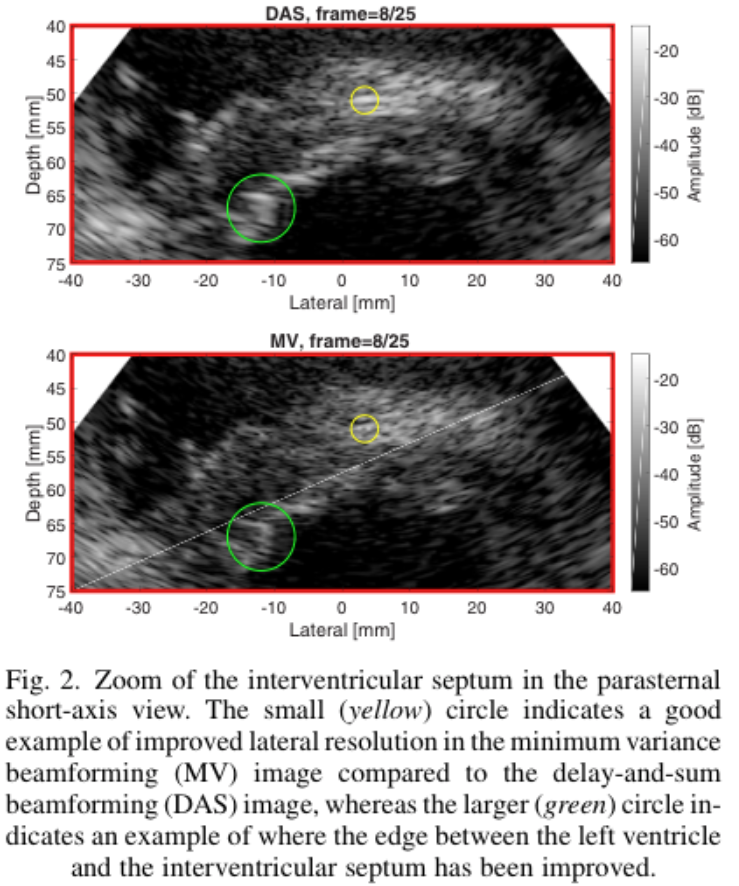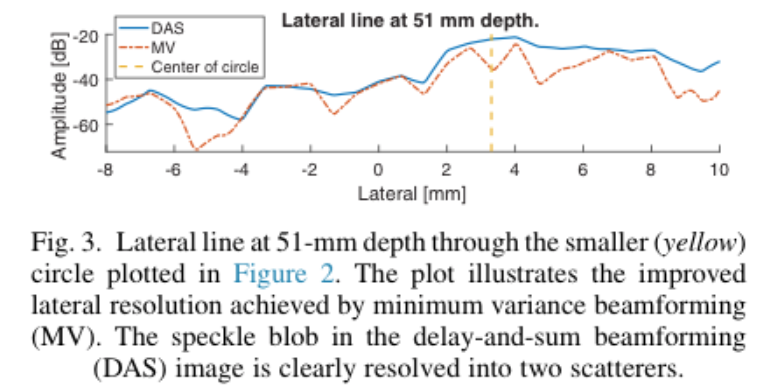The DSB research group has for several years done research on adaptive beamforming. One of many algorithms that has been studied is the minimum variance, or Capon, beamformer. There exists many variations on how this method is implemented.
In this project, we aim at implementing several alternative approaches to minimum variance beamforming and compare the resulting ultrasound image quality. Candidate approaches are:
- Li, Jian, Petre Stoica, and Zhisong Wang. "On robust Capon beamforming and diagonal loading." IEEE transactions on signal processing 51.7 (2003): 1702-1715.
- Saeed Mohammadzadeh, Vítor H. Nascimento, Rodrigo C. de Lamare, Osman Kukrer, “Robust adaptive beamforming based on virtual sensors using low-complexity spatial sampling,” Signal Processing, Volume 188, 2021.
https://doi.org/10.1016/j.sigpro.2021.108172 - Jie Zhuang, Yisong Xue, Jiancheng Kang, Daolin Chen, Qun Wan, “Robust adaptive beamforming under data dependent constraints,” Signal Processing, Volume 188, 2021.
https://doi.org/10.1016/j.sigpro.2021.108202 - Xue-Jun Zhang, Hu Xie, Da-Zheng Feng, Wei Xing Zheng, Hao Shuang Hu, “Fast and robust adaptive beamforming algorithms for large-scale arrays with small samples,” Signal Processing, Volume 188, 2021.
https://doi.org/10.1016/j.sigpro.2021.108223
In the project, you will do the following:
- Study the literature on minimum variance beamforming
- Implement various methods in USTB
- Test the implementation on real ultrasound data recorded using our Verasonics ultrasound scanner.
- Compare the results to the implementations that already exists in USTB
Qualifications:
- Excellent MATLAB programming skills (Object oriented MATLAB)
- Signal processing (IN3190/4190, IN5450, INF4480, and preferably IN3015/4015)
- Git Version Control

